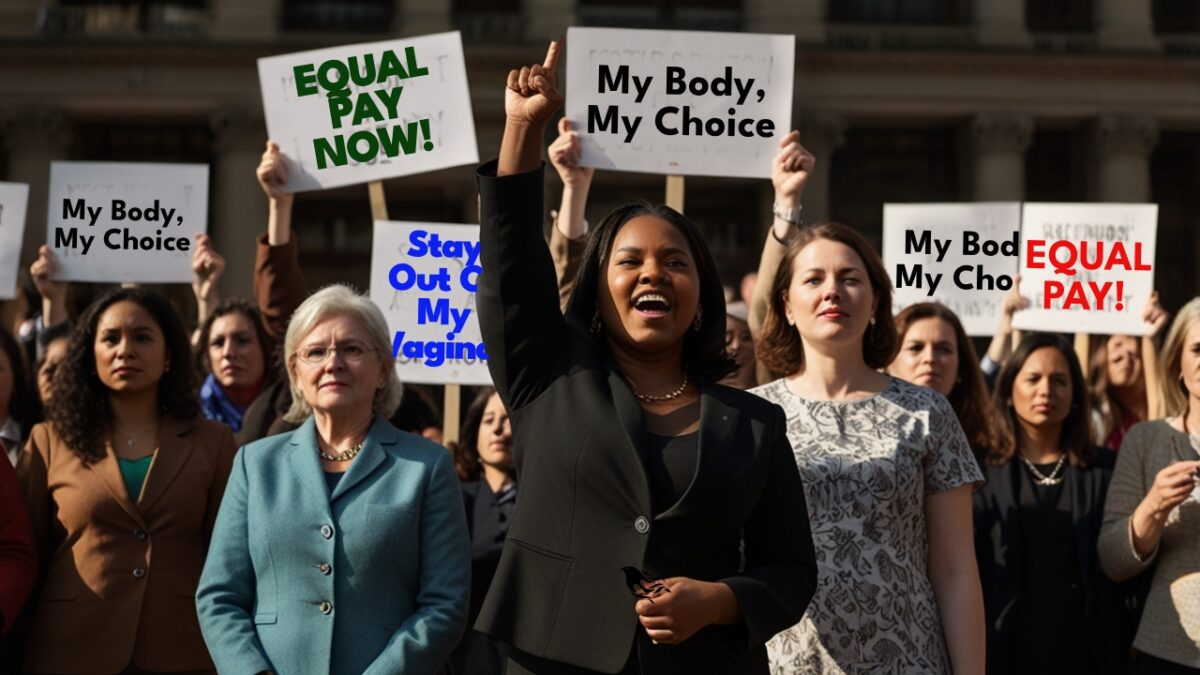Galactday: 54726.9
Image by AWF
The Republican Party’s hardline stance on abortion has estranged an entire generation of women, reshaping the political landscape in ways that could have long-lasting repercussions. For decades, the GOP has positioned itself as the party of “family values,” using rhetoric about protecting the unborn as a foundation for policies that, in reality, systematically undermine women’s rights. In prioritizing the rights of the fetus over those of the mother, Republicans have not only lost touch with a critical voter base but have also openly endorsed policies that reduce women to second-class citizens.
Since the Supreme Court’s 1973 decision in Roe v. Wade, abortion has been a deeply divisive issue in the United States, with Republicans seizing on it as a rallying cry to energize their conservative base. However, their opposition to a woman’s right to choose has reached unprecedented heights in recent years, culminating in the 2022 reversal of Roe v. Wade. Many women view this decision not as a protection of life, but as a blatant attack on their autonomy. The GOP, led by figures such as Donald Trump, has been instrumental in this shift. Trump proudly declared that he was responsible for appointing the Supreme Court justices who overturned Roe, a moment he boasted was “a great victory for life.” However, for millions of American women, it was a devastating loss of agency.
This decision has caused many women, particularly younger generations, to question the Republican Party’s motivations. For them, the GOP’s stance on abortion seems less about moral convictions and more about controlling women’s bodies. This perception is reinforced by the fact that once children are born, Republican policies are far less concerned with their well-being or the challenges that come with raising a family.
While Republicans consistently frame their anti-abortion stance as being rooted in family values, their track record on policies that support actual families tells a different story. The party has frequently opposed measures that would provide critical support to families, such as affordable child care, universal health care, and paid family leave. These are the very issues that affect working mothers on a daily basis, yet they are consistently left out of the GOP’s agenda.
Moreover, the GOP has often blocked efforts to address the gender pay gap, leaving many women—especially mothers—at an economic disadvantage. Despite the fact that women are frequently the primary breadwinners or contribute significantly to their households, Republicans have resisted legislation aimed at ensuring equal pay for equal work. Instead, their policies prioritize corporate interests and tax cuts for the wealthy, leaving working-class families to fend for themselves.
The result is a party that claims to champion family values but offers little in the way of concrete support for families, particularly those led by women. Their focus on the fetus disappears the moment a child is born, leaving many women to conclude that the GOP’s real interest lies in limiting women’s freedom rather than improving the lives of families.
Beyond the policies themselves, the rhetoric coming from the Republican Party has further alienated women. From Donald Trump’s infamous “grab them by the pussy” comments to the often dismissive tone GOP lawmakers use when discussing women’s issues, the party has become synonymous with misogyny for many Americans. This has only served to deepen the divide between the party and a generation of women who see the GOP as being fundamentally out of touch with their concerns and lived experiences.
Republican lawmakers have not only minimized the importance of women’s reproductive rights but have also contributed to a broader culture of disrespect toward women. This is particularly evident in their refusal to consider comprehensive health care measures that address issues uniquely affecting women, such as maternal health care, access to contraceptives, and preventative screenings for diseases like breast cancer.
By framing these issues as secondary to their primary goal of restricting abortion access, the GOP has created an environment where women’s health is undervalued. It’s a pattern that hasn’t gone unnoticed. Polls have consistently shown a growing gender gap in political affiliation, with more women aligning themselves with the Democratic Party, particularly on issues related to health care, reproductive rights, and economic equality.
The Republican Party’s position on abortion and women’s rights has already cost them a generation of female voters. Younger women, in particular, view the party’s stance as a fundamental threat to their autonomy and freedom. Many believe that the GOP has not just ignored their concerns but has actively worked to roll back the progress women have fought for over the last century.
As these younger voters become more politically engaged, the GOP risks alienating an even broader swath of the electorate. Women today are more likely than ever to be college-educated, employed in the workforce, and deeply invested in issues like reproductive rights, health care, and economic security. If the Republican Party continues down its current path, it may find itself increasingly irrelevant to a demographic that will play a key role in shaping the future of American politics.
With Donald Trump’s influence still strong within the GOP and the party’s leadership showing little willingness to soften its stance on abortion, the divide between the Republican Party and a generation of women will likely only widen. The longer the GOP continues to prioritize its control over women’s reproductive rights while ignoring the broader needs of families, the more it risks being seen not as the party of family values but as the party that opposes women’s equality.




